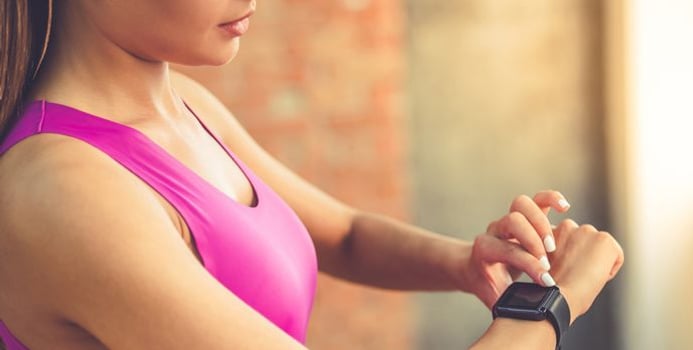These days, fitness trackers like the Fitbit aren’t that difficult to come by. It may seem like everyone and their grandmother has one, and you may even own one yourself. While those who own fitness trackers may swear by their motivating powers, just how accurate are they?
It’s All in the Measurements
If you’ve ever tracked your daily activities, you know that there are tons of ways to track your progress (or lack thereof). This includes time spent exercising and information specific to the exercise, like miles run or steps walked. And, depending on the fitness tracker you’re using, you can also measure your heart rate while you exercise. Although a fitness tracker will use all of these data points to make an educated guess about how many calories you’ve actually expended, that’s exactly what it is — an educated guess.
Some Are Better Than Others
In studies, researchers have found that some fitness trackers do a better job than others in accurately tracking the actual number of calories burned during an exercise session. Perhaps unsurprisingly, wrist-based devices tended to under- or overestimate actual calorie expenditure, while waist-based devices were a little more accurate. Still, even those devices weren’t always precise. The bottom line here is that no consumer-level device is going to be 100 percent accurate, at least as things stand now.
Is Accuracy Really Important?
Representatives of some of the major fitness tracker companies have acknowledged that their products don’t produce entirely accurate results, but that’s not the entire point. Instead, they say, what’s more important is the relative measurements their products help track. That is, while you shouldn’t put too much stock into how many calories you’ve spent during the day, you can still compare your results against the other days to see if you’re sticking to your fitness goals.
The Future of Fitness Trackers
Like all other technology, fitness trackers are bound to get more accurate as technology improves. Expect to see better heart rate monitoring optics on smartwatches, along with slimmer chest- and waist-mounted heart rate monitors. The real exciting stuff, however, is still a few years away, with startups working on implantables and even non-intrusive devices to track things like blood levels, breathing rates, and body temperature. The more data fitness trackers have to work with, the more accurate their readouts will be.
It might be a little disappointing to learn that fitness trackers aren’t exactly as precise as you thought they were. Give it time, though, and you’ll be sure to see some interesting developments in the coming years. For now, though, continue using your fitness tracker to keep you motivated during your workouts – and take the readouts with a pinch of salt.
[Image via Shutterstock]



